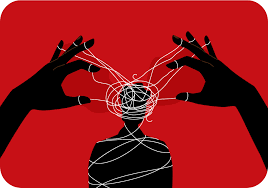Introduction: Why Early Signs of Burnout Matter
The early signs of burnout don’t arrive overnight. They creep in slowly — exhaustion that doesn’t fade, irritability that surprises you, and a loss of motivation for things you once loved. Psychologists define burnout as chronic physical, mental, and emotional exhaustion caused by long-term stress. Recognizing these early signals can help you prevent full burnout before it harms your health, relationships, and career.
1. Constant Fatigue
One of the most common early warning signs of burnout is relentless fatigue. Unlike ordinary tiredness, this exhaustion doesn’t improve with rest.
Psychology behind it: Prolonged stress floods the body with cortisol and adrenaline. Over time, the nervous system becomes overstimulated, leading to constant energy drain. Even after a full night’s sleep, you may wake up feeling “empty.”
Story example: A college student preparing for exams might notice that even after weekends off, they still feel drained — a classic burnout symptom.
2. Irritability and Mood Swings
You find yourself snapping at loved ones, feeling easily annoyed at colleagues, or suddenly overwhelmed by emotions.
Psychology behind it: When the brain is overstressed, the prefrontal cortex (responsible for rational thinking) weakens, while the amygdala (responsible for emotional reactivity) becomes hyperactive. This imbalance fuels irritability and emotional volatility.
3. Loss of Motivation
Passion projects, career goals, or even hobbies you once loved may suddenly feel meaningless. Work becomes mechanical, driven by obligation rather than interest.
Psychology behind it: Dopamine — the “motivation molecule” — decreases when stress is chronic. This creates a cycle where tasks feel heavier and joyless.
4. Difficulty Concentrating
Burnout doesn’t just affect mood — it impacts cognition. Forgetfulness, poor focus, and zoning out are common.
Psychology behind it: Stress impairs the hippocampus, the brain’s memory center. In burnout, many people describe feeling like their “brain is foggy.”
Example: Struggling to finish a two-page report, rereading the same lines without absorbing them.
5. Sleep Problems
Burnout often hijacks sleep patterns: insomnia, restless nights, or even oversleeping.
Psychology behind it: Stress hormones interfere with the body’s circadian rhythm. The mind remains hyper-alert, making it difficult to switch off. Oversleeping, on the other hand, may be the brain’s desperate attempt to recover.
اٹیچمنٹ اسٹائل: ایک مکمل گائیڈ
6. Withdrawal from Others
You start ignoring calls, avoiding colleagues, or skipping social gatherings. What used to recharge you now feels draining.
Psychology behind it: This is the mind’s defense mechanism — conserving energy by reducing interaction. But long-term isolation worsens burnout and can slide into depression.
7. Physical Symptoms
Burnout often manifests in the body before the mind catches up. Common symptoms include:
-
Headaches
-
Muscle tension
-
Digestive problems
-
Frequent colds due to weakened immunity
Psychology behind it: The “mind-body connection” means chronic stress reduces immune function, increases inflammation, and physically wears the body down.
8. Cynicism and Detachment
You may feel disconnected from your work, numb in relationships, or develop a negative, “what’s the point?” mindset.
Psychology behind it: This is known as depersonalization in burnout psychology — a coping strategy where the brain detaches emotionally to avoid pain.
9. Neglecting Self-Care
Skipping meals, ignoring exercise, abandoning hobbies, or turning to unhealthy coping mechanisms (alcohol, overeating) is another early red flag.
Psychology behind it: When the brain is overwhelmed, short-term survival takes priority over long-term health. The routines that sustain wellness are the first to go.
10. Feeling Trapped
Perhaps the most dangerous sign: a sense of hopelessness or feeling “stuck” with no way out.
Psychology behind it: This reflects a collapse in cognitive flexibility — the brain’s ability to generate new solutions. Burnout convinces you that nothing will change, even when options exist.
Why Recognizing These Signs Matters
Left unchecked, burnout can progress into:
-
Major depression
-
Anxiety disorders
-
Substance abuse
-
Physical illness (e.g., heart disease, hypertension)
But the good news: when you catch the early signs of burnout psychology, you can take preventive action and reverse the cycle.
Preventing and Reversing Burnout
-
Set boundaries: Say no to excessive demands.
-
Prioritize recovery: Sleep, nutrition, and exercise are non-negotiable.
-
Practice mindfulness: Techniques like meditation, breathing, and journaling calm the nervous system.
-
Reclaim joy: Reintroduce hobbies and activities that bring genuine pleasure.
-
Seek professional help: Therapy provides tools to manage stress and reframe challenges.
Conclusion: Burnout Whispers Before It Screams
Emotional burnout doesn’t appear suddenly — it builds slowly, with subtle warnings along the way. The signs of burnout psychology — fatigue, irritability, cynicism, withdrawal — are your mind and body signaling for help.
Listen to those signals early, and you can shift from exhaustion back to resilience. Remember: burnout is not a badge of honor — it’s a call to heal.
Author: Dr. Sadia Habib
Reviewed: Pakistan Psychology Today, Psychoremedy



